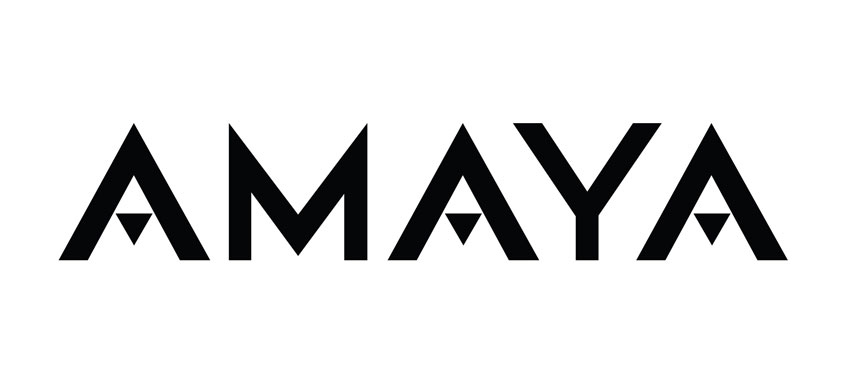The New Jersey Division of Gaming Enforcement has revealed that it is happy to act as judge, jury and executioner in its outrageous demand for Amaya to terminate the employment of four of its most senior executives.
The DGE has left PokerStars looking significantly less like the company that Amaya paid $4.9bn for just one year ago.
Amaya chief executive David Baazov is said to be “devastated” at the loss of his four executives. You can be sure he is not half as devastated as they are.
It is not necessary to name the names here. Unfortunately for them, they will be outed soon enough. It should be noted that the four people who were uber-investigated by DGE (interim CEO and FD Mike Hazel, interim COO Israel Rosenthal, Amaya Software general manager Serge Bourenkov and Amaya NJ CTO Charles Fabian) and presumed by some publications to be the four victims are not one and the same. Bourenkov did not even join the company until after Black Friday.
That said, the DGE has ripped out a raft of senior executives, who have been at the company the longest and steered it through good times and bad. These are the people that stayed with the company through UIGEA, Black Friday and the sale to Amaya. These are the people who know the company inside out. These are the people Amaya retained because it knew that it was already losing a massive proportion of the PokerStars brains trust upon acquisition. These are people that Amaya trusted and promoted to senior positions to take on the responsibilities of those who departed. These are people that Amaya would have expected to sail through the DGE’s suitability test or they would have been let go as former Amaya executive Paul Legget was let go in 2013, when Amaya started on this licensing journey. Legget was the chief operating officer of Tokwiro, the holding company of scandal-hit Absolute Poker.
DGE says it is working on the same principle that has seen it tell other online gaming companies not to hire or to axe 10 senior executives since it started licensing iGaming (including Legget). All that experience has been thrown away because the DGE feels it knows better than any court in the land.
There is not a single company that has been prosecuted for failing to comply with UIGEA but the DGE believes it knows best. It has taken the jobs of four people because – in its words – “they were involved in the management or control of companies that violated UIGEA”.
Firstly, these people were involved in management but they certainly were not involved in the decision to stay in the US after UIGEA was passed in 2006. That decision was taken by founder Isai Scheinberg and the company’s two board members Mark Scheinberg and Pinhas Schapira. In the case of Full Tilt, it would have had nothing to do with the people still with the company.
The DGE has asked Amaya to terminate the employment of executives who were merely carrying out the instructions given to them by the Board. There cannot be many employees who would quit their jobs just because they did not agree with their superiors’ decisions. In most professions, this would merely make them “good soldiers”, showing the “character, honesty and integrity” that the DGE claims it is looking for.
 Secondly, DGE has approached this issue “on the principle that the passage of UIGEA removed any ambiguity regarding whether online gaming was illegal in the United States”.
Secondly, DGE has approached this issue “on the principle that the passage of UIGEA removed any ambiguity regarding whether online gaming was illegal in the United States”.
The Act did nothing of the sort. In fact, it just added to the confusion around the issue. It was such a shoddily drafted piece of legislation that lawyers have been arguing about it ever since.
Its very own preamble states: “No provision of this subchapter shall be construed as altering, limiting, or extending any Federal or State law or Tribal-State compact prohibiting, permitting, or regulating gambling within the United States.”
This was a law about payment processing. You can argue that PokerStars executives must have known that its payment processors were miscoding transactions but it is doubtful you will be able to prove it. PokerStars had contracts with all its payment processors stating that they must obey the law.
UIGEA itself changed very little. If PokerStars, PartyPoker, 888 et al were allowed to offer online poker to US residents before 2006, there was very little in UIGEA to suggest they should stop after it was passed.
This was confirmed by the Department of Justice itself, when principal deputy assistant attorney general Brian Benczowski wrote in a letter to the House Committee on the Judiciary in 2007: “UIGEA itself does not make any type of gambling legal or illegal; rather, the statute is focused on regulating the methods of payment for already-illegal gambling.”
In 2009, the US Court of Appeals for the Third Circuit held that the UIGEA “does not itself outlaw any gambling activity, but rather incorporates other Federal or State law related to gambling”.
These are old arguments that PokerStars has peddled before and its case is set out clearly in the DGE report. Not so, for the DGE’s view. It has explained nothing.
Legislators, the DoJ and the judiciary have said that UIGEA changed nothing. But somehow the DGE has come to the conclusion that UIGEA “removed any ambiguity”. It does not explain how it has come to this conclusion. We asked the DGE to clarify its position but it did not respond. This is out of character. The DGE is normally happy to comment.
It has wrecked the careers of four executives and besmirched the names of others it labelled as leaving the company as a result of the transaction or as a “condition of the Division beginning its investigation”.
Those include Alex Payne, the chief marketing officer of eBay Europe, who joined PokerStars after Black Friday and left months before Amaya acquired the company. Former general counsel Paul Telford is tarred with the same brush time and time again in the report. Telford, a distinguished former lawyer with one of London’s elite magic circle firms and now a director of a biosciences company, joined PokerStars in 2008, long after the decision to stay in the US was made.
Sources involved in the investigation claim Baazov and general counsel Marlon Goldstein managed to convince the DGE to limit its demands to four executives rather than far more. One source claims the number was originally as high as 10. If this is true, it makes a farce of the whole process. Either the executives are suitable or they are not. Baazov’s pleas for leniency should have met deaf ears. It reinforces the belief that the DGE just wanted a pound of flesh to show to Amaya’s competitors.
“Look, we have cleansed this company!” the DGE can claim to anyone who questions it. This report reveals the full scale of regulators’ arrogance in presuming they know best with little heed paid to due process.
There are other glaring errors in the report. Why is Howard Lederer not mentioned as one of Full Tilt’s key players? Far from being a thorough investigation, the DGE has been left looking like a bunch of amateurs.
PokerStars will need to recruit to replace the experience it is about to lose. Others might step into the breach but Amaya is certainly not inheriting the company that it thought it was buying.
Its acquisition of PokerStars was based on three assumptions: Firstly, that it would get licensed in New Jersey; secondly that it would make a fortune from sports betting and casino; and thirdly that it had inherited a slick management team.
However, New Jersey was not the big prize. The report claims PokerStars made only $44.3m from New Jersey residents between October 2006 and April 2011. That figure is peanuts to Amaya, which hoped licensure in New Jersey would show California it is not a bad actor. Firstly, California will make up its own mind but more importantly, legislation still looks a long way off in the sunshine state.
The second assumption was that PokerStars players would love to play casino games and bet on sports. It has made a solid start in this regard but its hugely ambitious targets for these verticals are miles away. There is little evidence that internet users want a one-stop shop for gambling. PokerStars is a startup, when it comes to sportsbook – albeit a well-funded one – but it will have to go some to compete with bet365.
The DGE has destroyed the third assumption by taking that world class management team away from them. Amaya’s share price shot up almost 40 per cent last week as news of the New Jersey licence came through but investors are not counting the cost.
PokerStars has coped with far worse situations than the loss of four key executives. But without the executives who managed those crises, will Amaya cope just as well?
sah@gamingintelligence.com
